We were recently asked a very simple and direction question: Are you owned by a dairy?
Here's the simple and direct answer: Lochmead Dairy is now a majority owner of our company, Bliss Unlimited, LLC. Luna and I are still owners as well, but we now own a minority share. Now I'd like to give you a much more in-depth answer that I hope will help you understand our choice and address your concerns as a vegan...
When Luna and I started Coconut Bliss in the beginning of 2005 I was on unemployment, Luna worked part time in a health food store, we had no savings, and it felt like a huge risk to spend $3000 on a small Italian gelato machine that we financed with a credit card. Our production facility was a 15 foot kitchen trailer, borrowed from a friend, that was parked in our driveway. Our initial plan was to have a small, local company, selling bulk tubs to cafes and natural food stores in western Oregon to sell by the scoop. If things went well, we imagined expanding up into Washington, too, and maybe northern California.
Our first wholesale customers were both in Eugene: the Red Barn, our neighborhood natural foods store, and Sweet Life Patisserie, a neighborhood bakery/cafe owned by a friend. After around two weeks of serving Coconut Bliss by the scoop in their deli, Dan, the owner of the Red Barn, told us that he was being deluged with customers who wanted to buy Coconut Bliss in pints to take home and urged us to make it in this form. So we eagerly designed a label and started hand-packing pints. They flew off the shelves at the Red Barn, and soon we started getting orders from the other neighborhood natural foods stores here in Eugene, where it also sold briskly. Very soon we were working 14 hours a day to keep up with the demand.
It became clear at this point that: a) we needed a larger production facility, and (b) the demand for Coconut Bliss might be much bigger than we ever imagined! So over the next few months we raised around $75,000 from friends and family to create a real production facility with a much bigger batch freezer, a filling machine, lots of freezers, and all the other things we needed. We hired some staff and started expanding our range south to Ashland and north to Portland. At this point, Luna and I were doing all the deliveries ourselves with our mini-van, but as we continued to grow, we hired more staff, bought a delivery truck, and expanded our range north to Seattle and south to Santa Cruz. By this point, around the summer of 2007, after only two years, we were already maxing out our production facility!
So we were faced with a difficult choice: 1) stop growing, 2) build a larger facility that would accommodate the rate of growth that we were experiencing (this would cost more than $1 million--gulp!), or 3) consider what had previously been the unthinkable for us--find a co-packer who could make our product for us.
While our original vision was to have a small, regional company, we were receiving e-mails on a daily basis from people all over the country who had heard of Coconut Bliss and were pleading with us to make it available to them. All these people wanted Coconut Bliss for the same reasons that motivated us to make it in the first place—a desire for a delicious ice cream that wouldn't make us queasy--either physically or ethically. How could we say no? So after much deliberation we decided to grow.
To build our own facility would require an enormous capital infusion and would take years. We didn't have enough credit history or collateral to obtain financing from a bank, and even if we could, we couldn't afford the payments. Another option would be to bring in venture capital. This would entail our selling a controlling interest in our company to a wealthy individual or private equity firm whose primary goal would be to grow the business as big as possible as quickly as possible, and then sell it for a huge profit to the highest bidder (most likely an even bigger private equity firm or a large corporation). This was not an appealing option.
After considering the above, the thought of co-packing became much more palatable. With a hearty dose of skepticism, however, Luna and I visited Lochmead Dairy, which is in our neighboring town of Junction City. As we sat with Jock Gibson, whose parents started the business back in the 1940's, and his daughter Kim, who was the plant manager, we began to feel a lot better. At the time, they were still producing a lot of product for Turtle Mountain--in fact the initial lines of Turtle Mountain's products, Soy Delicious and Purely Decadent were developed at Lochmead and exclusively made there for many years. It was heartening to us that Lochmead had extensive experience with both organic and vegan products, and that they understood and honored our values and priorities. They expressed their dedication to making our products exactly the way we wanted them, with our recipes and the ingredient sources that we specified. Jock and Kim were both very excited and encouraging about what we were doing, and offered to help with some of the financing that was necessary to make this jump in scale, which would involve buying ingredients in much larger quantities and switching to pre-printed packaging, for which there were very large minimum orders.
As we made the transition to manufacturing at Lochmead, we also began distribution through UNFI, the largest natural foods distributor in the US. This seemed like a necessary move, because many natural food stores (e.g., PCC in Seattle, the largest food coop in the country), will not buy direct from manufacturers and will only buy through distributors. As a new client with UNFI, we wouldn't be getting paid for many months, so Lochmead's financial assistance at this point was critical. They covered the cost of our first 6 months of production, for which we gave them a 10% ownership share in our company. We felt very grateful and empowered by their trust in us, and it also made sense to Luna and me for the people making our product, because of their critical role, to be directly invested in our success.
But what about the seeming contradiction of a vegan product being made in a dairy plant, or being partly owned by a dairy company? Luna and I were very aware of the issues entailed. I served for several years as a board member of the EarthSave Foundation and have been a longtime advocate of plant-based eating, and Luna has a degree in nutrition from Bastyr University where her studies included the ecological and ethical aspects of diet. Here are the considerations that led us to embrace this choice:
* We believed that Coconut Bliss, because of its exceptional taste and creaminess, would appeal not just to vegans and lactose intolerant people, as was the case with soy and rice-based frozen desserts, but could win over people who were dairy ice cream eaters, too, and thereby help reduce the overall amount of dairy consumed.
* The only companies that have large scale ice cream production facilities are dairies, so there was no practical alternative if we wanted to grow.
* Lochmead Dairy is exceptional in that it in an industry that has become increasingly centralized and corporatized they are a rare model of a bioregional food company. They have their own farm, diary herd, dairy plant, and retail stores (Dari-Mart) where they sell their products. Almost all of their milk is consumed within 40 miles of the farm (where they also grow a large diversity of crops, including feed for the cows, mint, blueberries and hazelnuts). The ecological and social benefits of this are enormous, and an essential model for how our food supply can become more sustainable. Lochmead was also one of the first dairies in the region to take a public stand against rBgh and the routine use of antibiotics. And in an age of corporate consolidation of the food industry, they remain an entirely family-owned and operated business that provides employment to hundreds of people in the region. Many of their staff have been with the company for decades.
* Because Lochmead had already been making vegan frozen desserts for nearly 20 years, they had developed all the procedures and protocols necessary to prevent the contamination of our products with dairy residues. They have dedicated dairy-free days in the plant, and all of the equipment is cleaned, sanitized, and tested to ensure the absence of dairy residues before it is used to make Coconut Bliss. In addition, the organic and kosher certifications, which include annual inspections, require that effective procedures are in place to avoid the possibility of accidental cross-contamination with non-organic or dairy ingredients (since our product is pareve).
As our company continued to grow, Luna and I noticed the quality of our lives declining. While we started our company because we loved making food and feeding people, we were now spending our days in an office, dealing with finances, production schedules, forecasting, problem solving, and managing our growing staff. I would often wake in the middle of the night worrying about any of a myriad of things. It was clear that this was not what we really wanted to be doing with our lives, and that we had gotten far away from the daily pleasure of making food with our own hands, so we started looking for a way that we could move on. The pattern in the natural and organic foods industry has been for companies to reach a certain level of success and then be acquired by a large corporation. Seeds of Change was purchased by Mars, Dagoba was purchased by Hershey, General Mills owns Cascadian Farm and Muir Glen, and the list goes on and on (see this link for more info: https://www.msu.edu/~howardp/organicindustry.html). While we had been approached by a large corporation and several private equity firms, Luna and I felt dedicated to finding a way for Coconut Bliss to stay independent and locally based here in Oregon. We had heard too many stories of people who sold their companies to big corporations, hopefully believing the corporation's promises to uphold the quality and integrity of their products and their companies, only to be eventually disappointed when financial considerations trumped values and corners got cut. We couldn't quite get ourselves to buy into the "trickle up" theory--the idea that the values of the small companies that get acquired will inspire the parent corporations to start cleaning up their acts.
So we started thinking about Lochmead again. They were a 50+ year old business, deeply rooted in the local community, and they weren't going anywhere. The Gibson family had successfully done what most family businesses fail at--keeping the third generation involved. While they were very successful, and have always run profitably, they have succeeded because they value sustainability over profitability. And as their priority was long term sustainability, we believed that it would make sense for them to own Coconut Bliss so that they could be assured of keeping the staff at their ice cream plant working--an important value to them. They had recently discovered how vulnerable they are when they lost Turtle Mountain after nearly 20 years because Turtle Mountain built their own plant.
Luna and I feel great about our choice. We are still involved in the company, our entire staff are staying on to continue running it, and we have complete confidence that the quality and integrity of Coconut Bliss will not be compromised (we expect these, in fact, that it will keep getting better). And when Luna and I sit with Jock Gibson we feel a deep awe and appreciation for the rootedness in place and community that he embodies, and that we, as grandchidren of immigrants, can barely imagine. We feel grateful to be able to learn this from him and his family, and blessed that they are embracing our values as well.
If you have any more questions or concerns, please feel free to contact me.
Blissfully yours,
~Larry
PS: We want the conversation to continue. Please leave a comment below if you feel so inclined.

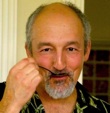


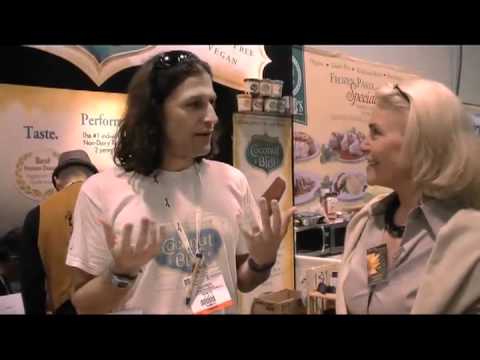

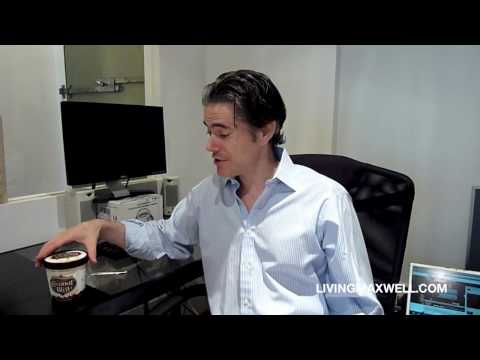
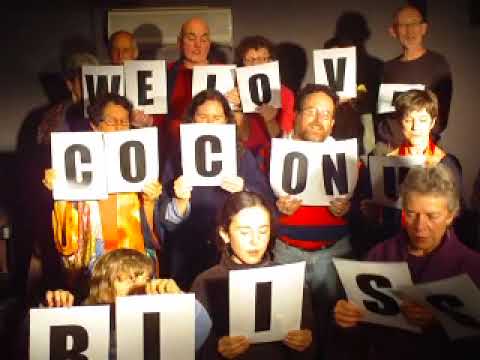
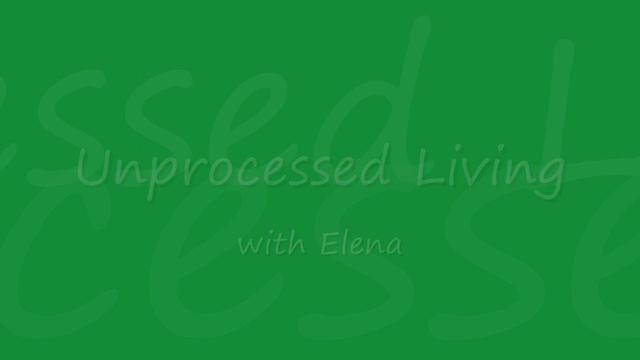
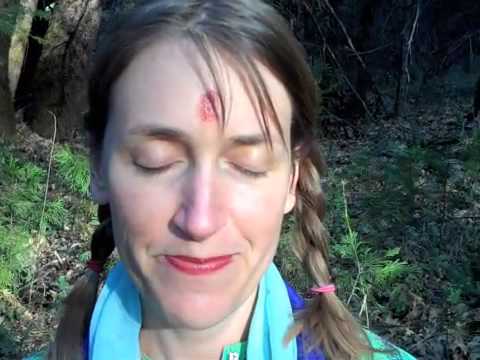




Losing Bliss
I find it sad to read some of these comments and see the absolute lack of compassion toward you Larry, and your team.
Yes, this may have been a challenging situation and the options may have been less than Utopian to the strict vegan crowd that seem to be commenting. But why are they vegan in the first place? Most commenters seem to be vegan as an expression of compassion for the animals, and the ecosystem.
What is compassion, though, if we fail to extend it to a fellow human being?
Larry, this is obviously a decision that has weighed on your minds for some time, and the stress it has caused you is hardly something that any of us envy.
Right or wrong, as human beings it is our job to be supportive and encouraging of one another... none can ever comprehend the burdens of another. I am saddened that such a small group can be so judging about a perceived lack of compassion to the cows, and not extend the same demanded compassion to a fellow human being.
It's sad that some would allow the choices of others to take away their bliss. Happiness is an inside job, after all, and those who are judging and throwing stones are merely displaying their own insecurities and lack of bliss.
Sending love & support to you, Larry and all of your team.
Compassion?
Yeah, but what about...
I'm sorry to hear that you
Veganism
farewell, delicious friend
how terribly sad
I have to agree with the
Sot so Blissful after all.
Deplorable behavior